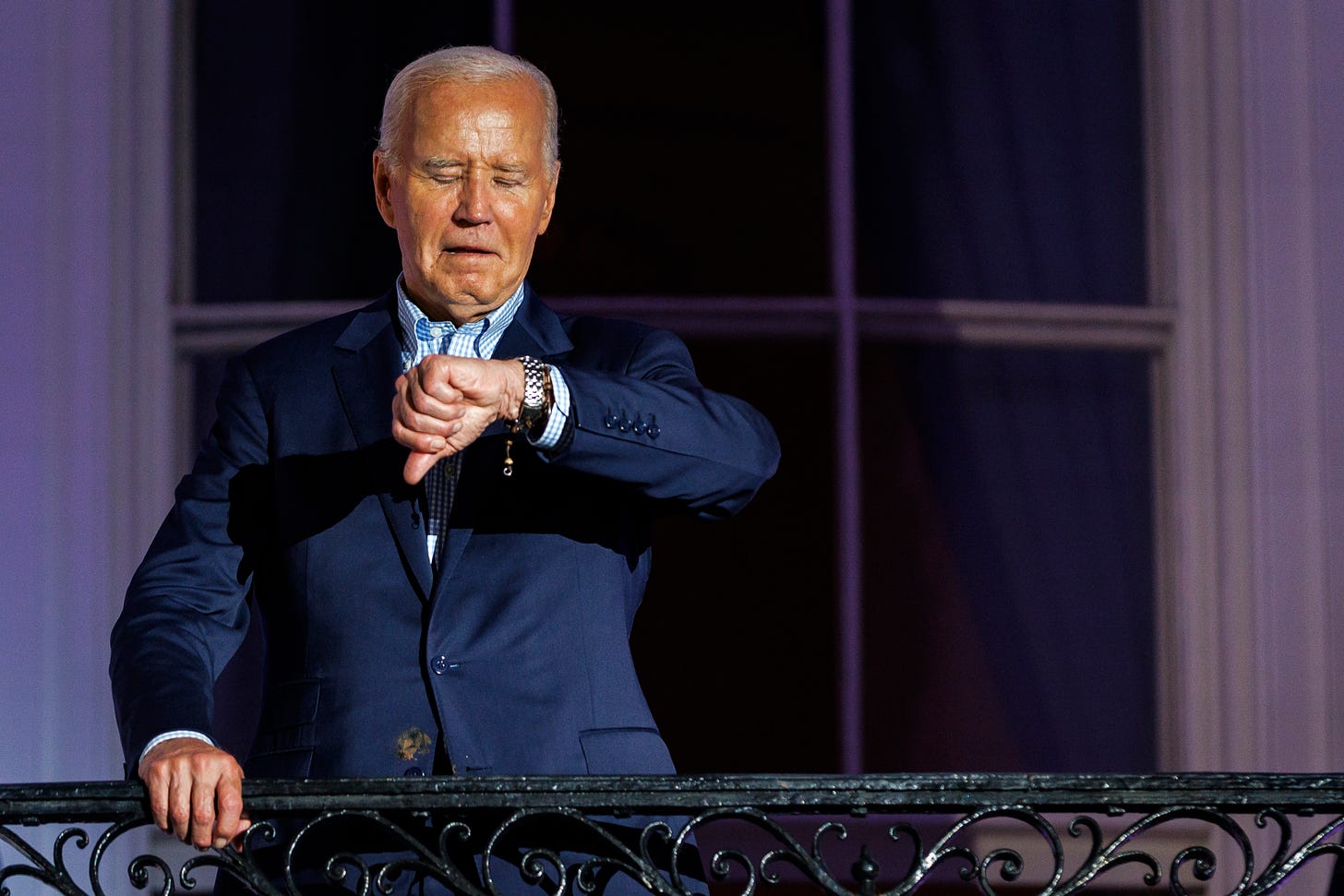
I was admonished early in my reporting career by William Shawn, the famed editor of the New Yorker for thirty-six years, to “use words” instead of cliches, and always try to do so. But it is time to talk about the foreign policy elephants in the room in the current crisis over Joe Biden’s political future, which is also the immediate future of the fractious Democratic Party.
And they are the current disasters in Ukraine, where a reviled Vladimir Putin, the Russian president, is winning, and in Gaza, where Benjamin Netanyahu, the Israeli prime minister, is losing a murderous war with Hamas and the respect of much of the world. Joe Biden’s policies in both instances have been both a political and a humanitarian disaster.
Biden and his foreign policy gaggle, led by Antony Blinken, his secretary of state, and Jake Sullivan, the national security adviser, helped to provoke a war in Ukraine and have supported Netanyahu with words and a lot of American bombs and other weaponry in his decision to respond to the Hamas assault last fall with an all-out war against Hamas that has devastated the innocent civilian population of Gaza.
Yes, Putin initiated the war in Ukraine, but there are many in the foreign policy world here and in Europe who believed that he might not have done so had the White House earlier authorized Blinken to assure Putin that Ukraine would not become a member of the North Atlantic Treaty Organization. NATO begins a seventy-fifth anniversary meeting today in Washington and, according to a predictable announcement to the press, it “will focus on ways to reassure Ukraine of NATO’s enduring support.”
Despite some early losses, Russia, with its advantage in air and ground forces, is now dominating the war and, despite scant interest in Washington, there are serious peace talks going on. A senior American official told me that Putin “has what he wants” in Ukraine and delayed an all-out assault on Kharkiv, Ukraine’s second-largest city, while a possible settlement is being negotiated, with no known direct involvement of the crisis-ridden White House.
It also is not clear what the future holds for Volodymyr Zelensky, the reportedly dispirited president of Ukraine. “No one knows what is going to happen to Zelensky,” the official told me. “The chain for him is getting shorter by the day.” Constant Russian attacks on power stations have left urban areas throughout the country, including Kiev, with only a few hours of power a day—not enough to prevent refrigerated food from going sour. Russia began targeting energy facilities throughout Ukraine in March, according to Reuters; the projected cost of repair and replacement is, as of late June, more than $16 billion. Russia escalated its missile attacks yesterday on cities across Ukraine, with one missile striking a major children’s hospital in Kiev, killing at least thirty-six people and injuring 140 others. It was not immediately known how many victims were children.
The political situation in Israel is equally grim, as the Israeli government—still being supplied daily by the Biden administration with American 2,000-pound bombs—continues to pound away in its more and more unsuccessful war against Hamas. The IDF was unable on October 7 to prevent Hamas from seizing hundreds of hostages. The mood of anxiety and fear has darkened, increasing Netanyahu’s political hold on many with his insistence that Israel will stay in Gaza until victory over Hamas is achieved.